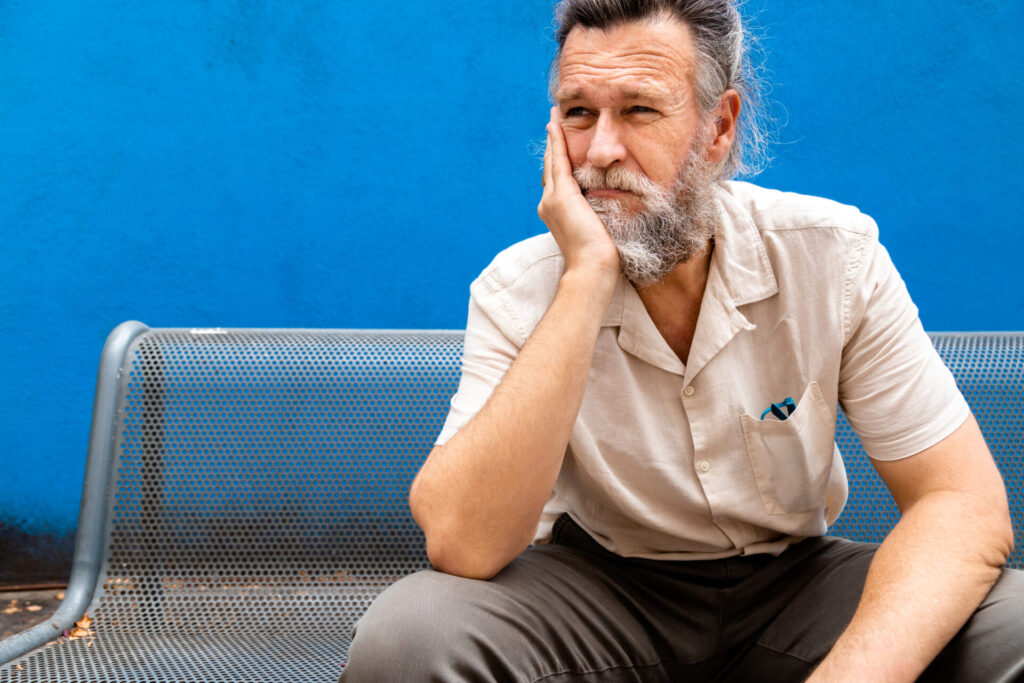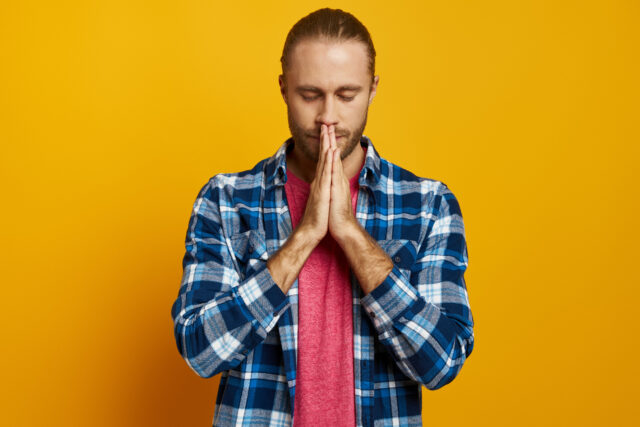Have you ever felt like you’re on a different wavelength from everyone else? Like you’re watching life happen from a distance, unable to truly connect with those around you?

It’s a common experience, but that doesn’t make it any less isolating. The feeling of disconnection can creep in for various reasons, leaving you feeling lonely and misunderstood. The upside is that understanding the underlying causes can be the first step toward bridging the gap and reconnecting with the world around you. With that in mind, here are some reasons this might be happening to you.
1. You’ve been through a major life change.

Life transitions, such as moving to a new city, starting a new job, or ending a relationship, can disrupt your sense of belonging and connection. You may be leaving behind familiar faces, routines, and support systems, leaving you feeling adrift in unfamiliar territory. Adapting to new environments and building new connections takes time, so it’s natural to feel disconnected during these periods of change.
2. You’re experiencing stress or burnout.

When you’re feeling overwhelmed and exhausted, it’s easy to withdraw from social interactions and retreat into your own world. Stress and burnout can drain your energy, leaving you with little motivation or desire to connect with people. Your focus shifts to self-preservation, and social interactions may feel like an added burden rather than a source of joy.
3. You spend too much time online.

While social media can be a great way to stay connected with friends and family, it can also create a false sense of connection. Spending too much time scrolling through curated feeds and comparing your life to other people’s can lead to feelings of inadequacy and isolation. Real-life interactions are much more fulfilling and nourishing than virtual ones, so prioritise face-to-face connection whenever possible.
4. You have unresolved emotional pain.

Past hurts, trauma, or unresolved emotional pain can create barriers to connection. You may unconsciously distance yourself from people to protect yourself from further pain or to avoid triggering difficult emotions. It’s important to acknowledge and address these unresolved issues, whether through therapy, journaling, or talking to a trusted friend. Healing your emotional wounds can open you up to deeper connections.
5. You feel like you don’t fit in.

Maybe you have different interests, values, or beliefs than those around you. Or perhaps you feel like you’re not part of any particular social group. Feeling like you don’t fit in can be isolating and lead to disconnection. It’s important to remember that you don’t have to conform to anyone else’s expectations. Embrace your individuality, look for communities where you feel accepted and understood, and create your own tribe of like-minded people.
6. You’re experiencing grief or loss.

Grief can be a lonely and isolating experience. When you’re mourning the loss of a loved one, a relationship, or even a dream, it’s natural to withdraw from social interactions and focus on your healing process. It’s important to allow yourself time to grieve, but also to reach out for support from friends, family, or a therapist. Sharing your grief with people can help you feel less alone and more connected.
7. You have social anxiety.

Social anxiety can make it difficult to interact with people and form meaningful connections. You may feel self-conscious, fear judgment, or worry about saying or doing the wrong thing. These fears can lead you to avoid social situations altogether, further isolating you from the world around you. If you suspect you have social anxiety, seeking professional help can be a transformative step in overcoming your fears and building healthier connections.
8. You’re dealing with depression.

Depression can zap your energy, motivation, and interest in social interactions. You may feel withdrawn, apathetic, or simply not up for engaging with anyone. If you’re feeling persistently sad, hopeless, or disconnected, it’s important to reach out for help. Depression is a treatable condition, and seeking professional support can make a world of difference in your well-being and ability to connect with people.
9. You have unrealistic expectations of people.

If you find yourself constantly disappointed by people’s actions or words, it could be a sign that you have unrealistic expectations. Remember, no one is perfect, and everyone makes mistakes. Holding people to impossibly high standards will only leave you feeling frustrated and disconnected. Try to focus on people’s positive qualities and accept their imperfections.
10. You haven’t prioritised self-care.

Neglecting your own needs can lead to emotional exhaustion and a sense of detachment from pretty much everyone. When you’re not taking care of yourself physically, mentally, and emotionally, it becomes difficult to connect with people on a deeper level. Make sure you’re getting enough sleep, eating nutritious food, exercising regularly, and engaging in activities that bring you joy and fulfilment.
11. You’re going through a difficult time.

Everyone goes through tough times, and it’s natural to feel disconnected from everyone during these periods. Whether you’re dealing with a personal loss, a health issue, or a career setback, it’s important to give yourself time and space to heal. Remember, it’s okay to not be okay, and it’s okay to ask for help when you need it. Talking to a trusted friend, family member, or therapist can help you process your emotions and reconnect with yourself and everyone else.
12. You have trust issues.

Past betrayals or negative experiences can make it difficult to trust people and open yourself up to new connections. If you’ve been hurt before, it’s understandable to be cautious and guarded. However, holding on to these trust issues can prevent you from forming meaningful relationships. Consider seeking therapy or counselling to address your trust issues and learn how to build healthier connections based on mutual respect and vulnerability.
13. You lack communication skills.

Effective communication is essential for building and maintaining relationships. If you struggle to express your thoughts, feelings, and needs clearly, it can lead to misunderstandings, conflicts, and a sense of disconnection. Practice active listening, learn to express yourself assertively, and be open to feedback. Improving your communication skills can significantly enhance your ability to connect with people.
14. You compare yourself to other people.

Thanks to social media in particular, it’s easy to fall into the trap of comparing yourself to other people. But remember, everyone’s life is different, and what you see on social media is often a curated highlight reel. Comparing yourself to anyone else can lead to feelings of inadequacy, jealousy, and isolation. Focus on your own journey, celebrate your unique strengths, and practice self-compassion. Remember, you are enough just as you are.
15. You’re not putting yourself out there.

If you’re feeling disconnected from everyone, it might be because you’re not actively seeking connection. Maybe you’ve withdrawn from social activities, stopped reaching out to friends, or become too comfortable in your own company. Making an effort to connect with people, whether it’s joining a club, volunteering, or simply striking up conversations with new people, can help you break out of your isolation and build meaningful relationships. Remember, connection requires effort and vulnerability, but the rewards are immeasurable.




